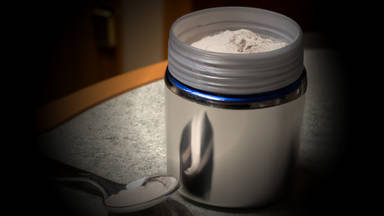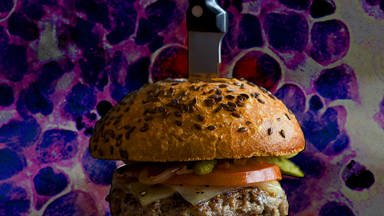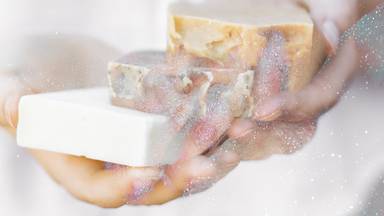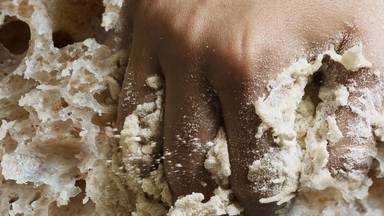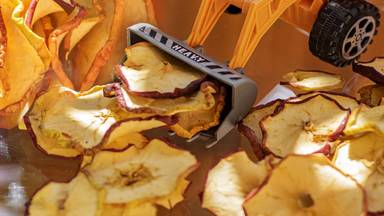
Histamine intolerance is the inability to metabolize the ingested histamine. It is not an allergy, instead, it refers to a reaction of some people to foods that naturally contain more levels of histamine. The problem arising from the reduced capacity of histamine degradation in the intestine leads to the accumulation of histamine in plasma and the consequent adverse effects. This disorder is caused by several reasons including enzyme impairment, diet, allergy, etc.
An important natural compound in the human body, SAMe (S-adenosyl-L-methionine) is needed for hormone regulation and maintaining cell membranes. Over-the-counter supplements of SAMe have demonstrated to be efficient in alleviating several problems such as osteoarthritis pain, depression, etc. A study showed that SAMe can also be useful in degrading the histamine level in people with histamine intolerance. (2)
This article discusses the root causes of histamine intolerance, and the benefit of taking SAMe as a treatment, as well as alternative treatment methods for histamine intolerance.
Histamine intolerance symptoms
There are a wide range of histamine intolerance symptoms including dizziness, headache, palpitation, abdominal pain, constipation, diarrhea, flushing, swelling, eczema, bloating, nausea, sneezing, nasal congestion and rhinitis. These symptoms can emerge shortly after consuming foods high in histamines, such as microbiologically altered foods like meat and fish, preserved and processed food, and fermented foods.
Causes of histamine intolerance
Histamine intolerance can develop either by increased histamine in the body or impaired histamine degradation. The underlying reasons can be food allergies, bacteria, excess ingestion of histamine in food or alcohol, and gastrointestinal bleeding.
The other root cause of histamine intolerance can be an enzymatic disability of histamine degradation caused by genetic or acquired impairment of the enzymatic function of HNMT or DAO.
Some of the reasons that may lead to this impairment include:
- A deficiency of the DAO enzyme
- Gastrointestinal disorders(e.g., gastroenteritis, irritable bowel syndrome, short bowel syndrome, and gastrointestinal surgery) such as carbohydrate malabsorption and non-celiac gluten sensitivity
- Interactions between drugs
- Inflammatory bowel disorders can affect mucosal integrity, resulting in impaired DAO activity
- Permeability of the intestine
- Different stages of the monthly cycle are associated with DAO fluctuations in women
How to fight histamine intolerance
Histamine intolerance can be treated by identifying the root cause and addressing it since oversupplementation can exacerbate the condition.
There are two main reasons for histamine intolerance:
- Too much histamine being accumulated in the body
- Too little degradation enzyme produced to break down histamine
We will proceed by discussing the reasons for excessive histamine production in the body as well as the causes of a deficiency in enzymes required for histamine detoxification.
Overproduction of histamine
There are several studies(3) revealing that a low histamine diet is an efficient way to degrade histamine from the body in people with too much histamine accumulated in their body, which have been caused by diet, gut microbes, Mast Cell Degranulating Peptide or allergy. However, the problem may come back after changing the diet.
Deficiency of histamine degradation enzyme
The most common cause of histamine degradation impairment is genetics. As previously stated, there are two enzymes associated with histamine degradation impairment: DAO (Diamine oxidase), and HNMT-Histamine.
Some ways helpful to treat histamine intolerance caused by deficiency in enzymes:
Taking DAO supplements is a method that has shown is beneficial in individuals whose root cause is inability of their body in making DAO enzymes. DAO (Diamine oxidase) supplements are over-the-counter products and can help the body to restore DAO enzyme and break down histamine.
The other histamine degrading enzyme is N-methyltransferase, found in all the blood cells of the body. Methyltransferases are a group of enzymes which catalyze the transfer of a methyl group from the methyl donor SAMe(A-adenosyl-l-methionine) to their subtracts. SAMe supplements are effective in decreasing the histamine level in individuals with histamine intolerance caused by methylation deficiency.
Methylation deficiency
Methylation deficiency is one of the most common causes of histamine intolerance. The methylation process is required for several vital biochemical reactions, such as transfering of an active methyl group between molecules.It is necessary for cell division, DNA and RNA synthesis, gene expression, immune system, hormone balancing, detoxification and the clearance of histamine.
Methylation deficiency can be caused either by diet or genetics. Impaired methylation leads to a wide range of conditions including: histamine intolerance, depression, increased risk of cancer, birth defects, fertility issues, fatigue, low energy, anxiety, PCOS, and thyroid conditions.
What causes low-methylation
The most common reason for methylation deficiency is MTHFR enzyme impairment. When MTHFR cannot work efficiently, the body cannot absorb B12, B2, and folic acid. Therefore, supplementing with an active form of vitamin B can be helpful in people whose MTHFR is not activating the B vitamins on its own.
A diet low in folate,B12,B2 also can cause a deficiency in methylation.
Indicatives of Methylation deficiency
A functional blood chemistry test, along with a genetic test for MTHFR, can detect impaired methylation in the presence of low serum folate, low serum B12, high serum homocysteine, and high serum MMA. Other indicative markers of impaired methylation include high serum homocysteine, high urine MMA, high urine FIGLU, and low RBC folate.
SAMe
SAM-e (S-adenosyl-L-methionine) is a naturally occurring molecule formed by the amino acid methionine in the human body. SAMe plays an important role in maintaining cell membranes, the immune system, and breaking down brain chemicals including melatonin, serotonin, and dopamine. SAMe has been demonstrated in several trials to help with depression and osteoarthritis pain.
The taking of SAMe improves liver disease by normalizing liver enzyme levels. A lack of folate or vitamin B12 decreases the levels of SAMe in the body. There is a study showing that supplements that are related to high red blood cells (Including SAMe(2), and methionine) lower histamine levels.
How to take SAMe
SAMe absorbs better when it is taken with vitamin B12, folic acid, methionine, and trimethylglycine with an empty stomach. Start with lower dosage (e.g. 200 mg per day), then increase the dosage as needed.
Side Effects
Although SAMe is generally safe, in some individuals, it can cause skin rashes, headaches, dry mouth, constipation, and diarrhea. Furthermore, taking high doses can result in gastrointestinal problems if taken without adequate amounts of folic acid, vitamin B6, and B12 in the diet. (1)
According to a study, taking SAMe may increase homocysteine levels. Elevated homocysteine levels may contribute to cardiovascular and kidney diseases. It is recommended that people who take SAMe supplements decrease their intake of animal foods in their diet in order to prevent homocysteine level increase. Take your SAMe with plenty of vitamins B6, B12, and folate. Dark green leaves, dried peas, broccoli, asparagus, and beans are good dietary sources of folate.
Footnotes
1. https://www.ncbi.nlm.nih.gov/pmc/articles/PMC4004707/
2. https://pubmed.ncbi.nlm.nih.gov/685755/
3. https://www.ncbi.nlm.nih.gov/pmc/articles/PMC5346110/
3. https://www.ncbi.nlm.nih.gov/pmc/articles/PMC3199434/
3. https://www.ncbi.nlm.nih.gov/pmc/articles/PMC5839887/
